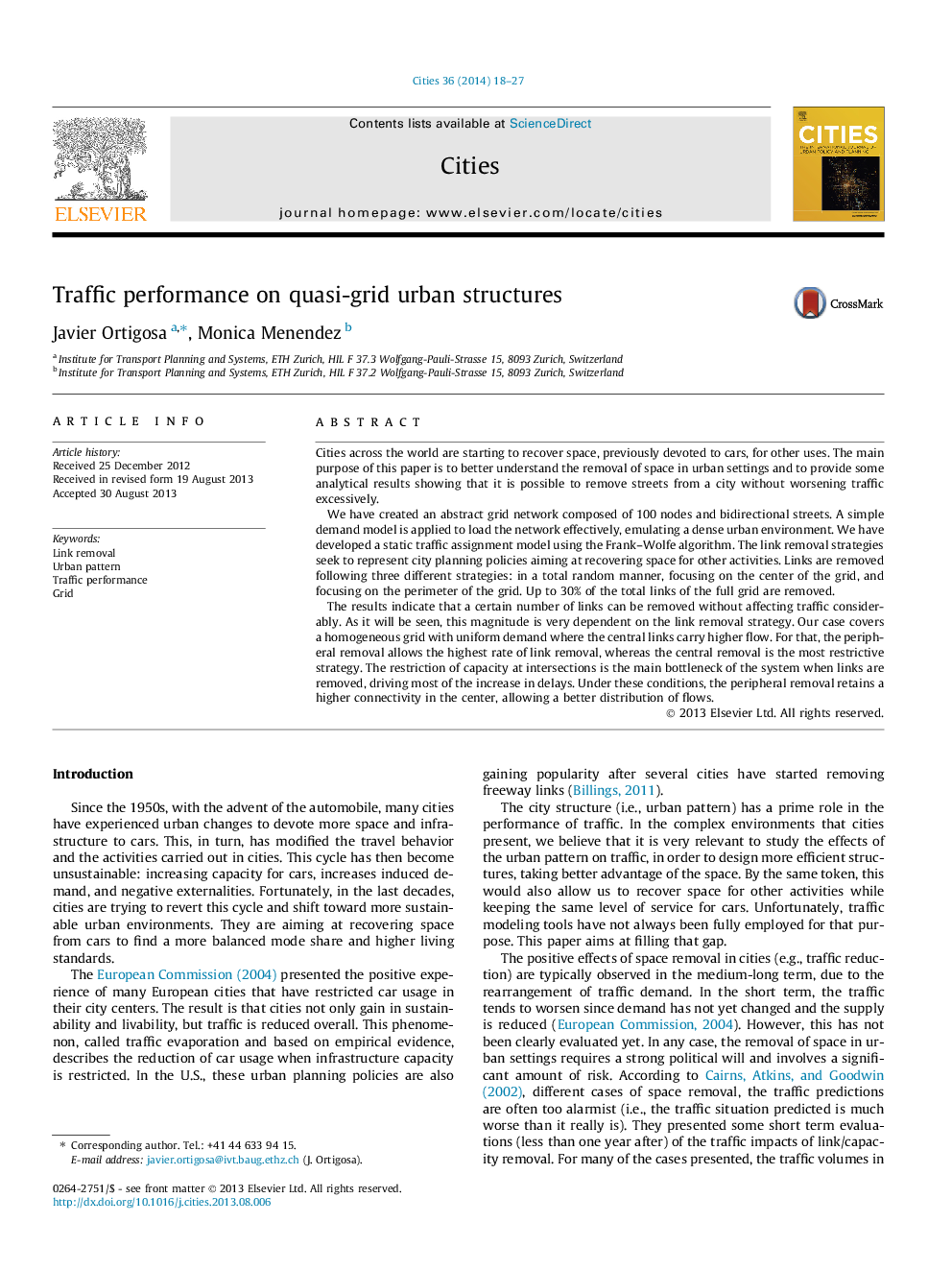| Article ID | Journal | Published Year | Pages | File Type |
|---|---|---|---|---|
| 1008364 | Cities | 2014 | 10 Pages |
Abstract
The results indicate that a certain number of links can be removed without affecting traffic considerably. As it will be seen, this magnitude is very dependent on the link removal strategy. Our case covers a homogeneous grid with uniform demand where the central links carry higher flow. For that, the peripheral removal allows the highest rate of link removal, whereas the central removal is the most restrictive strategy. The restriction of capacity at intersections is the main bottleneck of the system when links are removed, driving most of the increase in delays. Under these conditions, the peripheral removal retains a higher connectivity in the center, allowing a better distribution of flows.
Keywords
Related Topics
Social Sciences and Humanities
Business, Management and Accounting
Tourism, Leisure and Hospitality Management
Authors
Javier Ortigosa, Monica Menendez,
